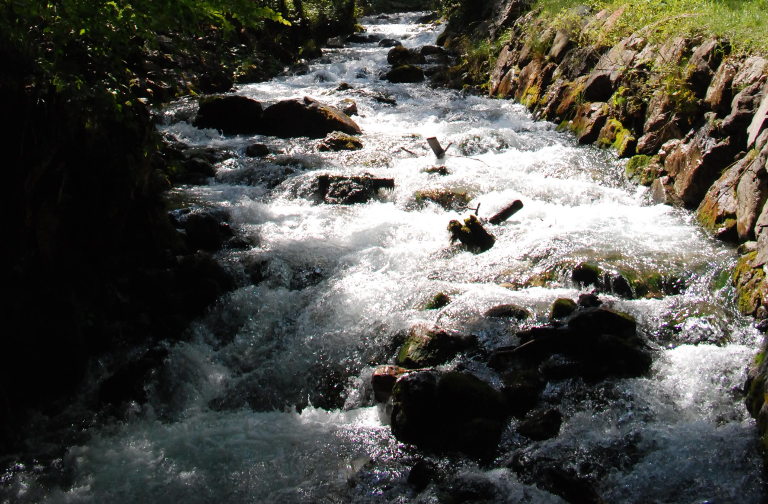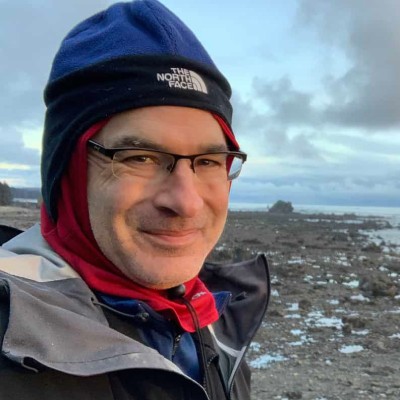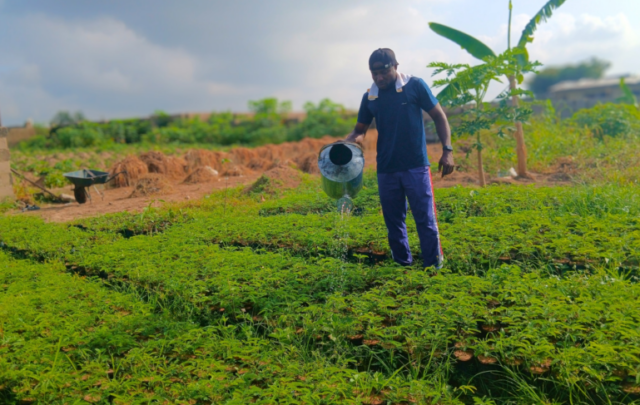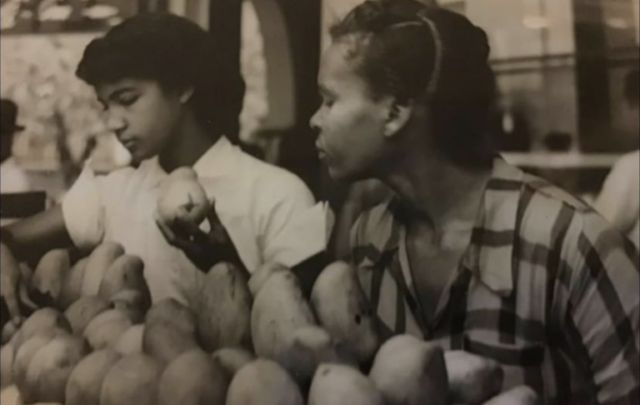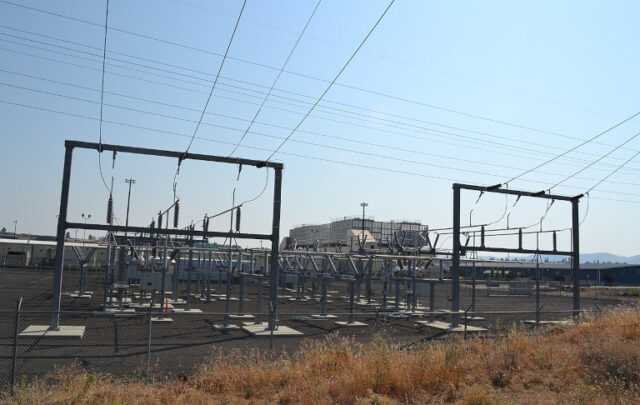This is a hard piece to write, partly because we, too, are baffled. Environmental collapse, coupled with living in the sixth mass extinction, are new territory. We are still in the process of confronting the reality of living with the prospect of an unlivable planet. These thoughts emerge out of our sober forays into an uncertain future, searching for the right ways to live and serve in the present. The second reason for our reluctance to share this contemplation is anticipation of the grief, anger and fear it may trigger. We visit these chambers of the heart frequently, and know the challenges of deep feeling, particularly in a culture that denies feelings and pathologizes death.
As the unthinkable settles in our skin, the question of what to do follows closely. What is activism in the context of collapse? Professor of sustainability leadership and founder of the Institute for Leadership and Sustainability (IFLAS) at the University of Cumbria (UK) Jem Bendell’s definition of collapse is useful: “the uneven ending of our current means of sustenance, shelter, security … and identity.” Bendell isn’t the first to warn of collapse — NASA warned of it five years ago. Anyone who takes in the realities of our times will need to find their own relationship to the hard truths about converging environmental, financial, political and social unraveling. There are billions on the planet who are already experiencing the full direct effects of this right now. Forty percent of the human population of the planet is already affected by water scarcity. Humans have annihilated 60 percent of all animal life on the planet since 1970.
Described here, borrowing from Bendell’s analysis, are three responses to imminent collapse. The first is characterized by intensifying efforts to fix the mess we have created. The idea here is that if we just work harder, we can change the situation. The second is mitigation of inevitable suffering and loss, easing the pain and harm that is already underway. Mitigation slows the demise down, giving us the time for the third, which is adaptation to the life-threatening scenarios before us, or in Bendell’s words, “deep adaptation.”
The three-tier framework we’re suggesting is more like a spectrum, and the tiers interlace at times. As our understanding of the biosphere catastrophe evolves, we may shift our focus of activism. Our age and stage of life also affect where we invest our lifeblood.
The downside of the first response, “fixing” the crisis, is that it often galvanizes false hope in an external panacea that we can vote for or count on. Riveted on the fixes, attention can be diverted away from the adaptation to the crisis that needs to happen in short order, both personally and within our institutions. For example, it takes time to plan for waves of millions of refugees and extreme food and water shortages. Solutions centered on “fixing” often sell books and technological promises. The opportunists are eyeing the take. This motivation is more of the same mentality that got us into this situation in the first place.
The upside of the fixing response, however, is the upwelling of the human spirit through intensified social movements. Alexandria Ocasio-Cortez’s New Green Deal is a valiant example of a fresh plan to “fix” what is broken in the United States. The direct actions of the Extinction Rebellion are a powerful force, not to mention the electrified youth marches gathering momentum around the world. Sixteen-year-old Greta Thunberg spearheaded a stunning victory in the EU recently. If the impeded stream sings, as Wendell Berry put it, these are rivers of rousing choirs.
The second response, mitigation, also has merit. It aims to stave off the collapse long enough to get needed preparation in place for what is to come.
Stellar examples of this are found in the regenerative agriculture movement. A farmer in drought-stricken Australia told us about the macadamia farm his family owned. He remembers his mother saying, “We’ll plant ’til we can’t.” That day came, so they decided to give farming a go in New South Wales. He described digging a posthole three feet deep recently. At the bottom of the hole was more dust. He and his family are joining fourth generation farmers who are jettisoning traditional farming practices that further deplete the parched earth. He uses no chemicals, rotates stock every three or four days, and is building every condition for the native grasses to thrive once again. Neighboring farms are “destocking” (i.e. slaughtering) sheep and cattle as feed disappears. Food supplies are dwindling for people and animals alike. But he will plant ’til he can’t. When asked about his motivation to persist in such difficult and heartbreaking work, he said it was for love of the land, but most importantly, love for his children. He wants to provide a safe refuge for them for as long as possible.
Regardless of the plethora of geoengineering plans to draw down CO2 levels or reflect solar radiation back into space, the tough reality is that the effects of CO2 already present in the biosphere are irreversible, and intensifying rapidly. Barring unforeseen forces at work, a consensus of scientific research tells us that a minimum of three degrees Celsius (3°C) warming is already baked into the system under current global climate pledges. A study published in Nature magazine showed that over the last quarter-century, the oceans have absorbed 60 percent more heat annually than estimated in the 2014 Intergovernmental Panel on Climate Change report. [Editor’s note: According to BBC News, this figure has since been revised to “between 10% and 70%.” -DL] The study underscored that the oceans have already absorbed 93 percent of all the heat humans have added to the atmosphere and that planetary warming is already far more advanced than had previously been grasped. If the oceans had not absorbed that heat, global atmospheric temperatures would be 97 degrees Fahrenheit (97°F) hotter than they are today. Today’s carbon dioxide levels at 410 parts per million (ppm) are already in accordance of what historically brought about a steady state temperature of 7°C higher and sea levels 23 meters higher than they are today.
Anyone who thinks there is still time to wholly remedy the situation must answer the question: How do we remove all the heat that’s already been absorbed by the oceans? Invigorated activism, as heartening and important as it is, is not going to completely stem these tides.
Thus, the third level of activism, adaptation, comes into focus.
Adaptation is new territory. Here is the realm of healing, reparation (spiritual and psychological, among other ways) and collaboration. It is strangely rich with a new brand of fulfillment and unprecedented intimacy with the Earth and one another. It invites us to get to the roots of what went astray that has led us into the sixth mass extinction. Given that with even our own extinction a very real possibility, even if that worst-case scenario is to run its course, there is time left for amends, honorable completions, and the chance to reconnect in to this Earth with the utmost respect, and in the gentlest of ways.
The window for practical preparation for accelerating collapse and chaos is now open.
“Hope is not the conviction that something will turn out well,” Czech dissident, writer and statesman Václav Havel said, “but the certainty that something is worth doing no matter how it turns out.”
Here are a few stories about adaptation, to give a feel for actions that flow out of this type of hope — a hope that includes a hard-won acceptance of the very real possibility of impending collapse.
— An association of mental health workers has created the Climate Psychologists Alliance, in the U.K., Scotland and the U.S. They provide newly adapted psychological services for understanding and facing human-caused climate disruption, along with the difficult truths that come along with it, and helping one another engage while responding to our ecological crisis.
— Gerri Haynes is a 75-year-old and mother of four children and many precious grandchildren. She and her husband, Bob, live in Seattle. They have asked their children and families to remain located nearby in anticipation of duress to come. Their top priority in life, after years of work with Physicians for Social Responsibility, is keeping their family safe and together. The bonds are deep and will carry them through.
— Siena is an 18-year-old Canadian who has opted out of the university track, despite top grades. She has chosen to go to a local trade school where she is studying metal work (milling), welding, plumbing, electrical and carpentry. Her focus will be horticulture. Siena loves working with her hands both for practical purposes and for the joy of creating beauty. She is keenly aware of the usefulness of these skills should industrial infrastructure collapses. She is adapting to our global crisis with great enthusiasm, amid her keen awareness of how much is changing and the challenging times that are imminent.
— Dahr recently spoke to a class at Cabrillo Junior College, elaborating on the climate science in his book, The End of Ice, that explores bearing witness and finding meaning amidst climate disruption. At the end of his talk, a young woman raised her hand and asked, “What can I do? I am poor and have so little to offer.” Later on, in a conversation she mentioned that she was the mother of a young child. This brought tears. The act of parenting, while fully conscious of our likely demise, could now be one of the most heroic forms of activism on the planet. Though the future looks bleak, how can we live in a way that supports seven generations hence? What a form of activism, raising children who cherish this world, who are secure and confident in themselves, who can see and think clearly, who know they matter, who walk on this Earth with respect and curiosity?
— The two of us, along with neighbors, maintain a large garden that provides us vegetables, fruit and berries, along with the calm satisfaction of watching the insects and birds it attracts. Millions of people are already wisely and instinctively following their interests in growing food. Here is intense satisfaction, joy and preparation.
— Finally, a tribute to Stan Rushworth who is filling in a critical void in our attempts to reconnect with the Earth in the time before us. An elder of Cherokee descent who was brought up by his grandfather in traditional ways, Stan knows that all trees and rocks are alive, and that all beings are connected and communicating in their own ways. He knows there is no back-to-the-Earth movement in the United States that does get our history straight. The truth is that the first colonists arrived in North America when it was the thriving home of over 60 million Native people. In very short order, 96 percent of these men, women and children were cruelly sacrificed in the spirit of “manifest destiny” as one of the most barbaric rapid genocides that has ever been carried out. Rushworth teaches at a community college, where his labor of teaching this critical history to younger generations has gone on for a quarter of a century. Without commitment to acknowledge, work against and build reparations for the abomination of Native genocide, we have no foundation upon which to live.
Way upstream of all these noble stories is a subtle and profound kind of activism that could permeate every action we choose to take, on any tier. Author and teacher Joanna Macy, who is a scholar of Buddhism, systems thinking and deep ecology describes an activist as “anyone who does something for more than personal advantage.” The implications of generous action begin to tip a massive scale away from the pervasive greed and self-centeredness that fuels the root causes of this sixth mass extinction. In fact, we belong to a complex and wondrous net of life, characterized by balance, natural limits and respect.
What if, in the time we have left, we can simply remember this? Then we enable ourselves to walk away from the illusion of separation. Luckily, we already have a compass within ourselves, ready for activation. During a recent unseasonable cold snap in our hometown, one of our friends, Casey Taylor, spontaneously took it upon himself to make a large bag of peanut butter and jelly sandwiches and search out homeless people in the woods. He delivered the sandwiches along with blankets and heating fuel to everyone he could find. He knew of a need and deployed himself, no matter his humble resources, to fill it.
Perhaps one of the most potent rebellions of this time is the refusal to walk in the mainstream western herd, conforming to expectations and values that have ultimately ravaged the Earth. Opting out at its core means realignment with an inner knowing about what is ours to do, from the inside out.
Each one of us must choose the path that is ours. The sum total of this is legions of people taking action in their unique ways, and supporting one another.
Consider this story of a father’s support for his daughter’s choice to follow her calling. Mark Oates, father of 17-year-old Shayla, wrote to Barbara about his despair and fear, as his daughter heads into a dicey climate march that risks repercussions:
Shayla has decided she needs to rebel again and will be putting up posters for the School Strike 4 Climate on Friday in preparation for the 15th of March. She knows that it is too late, but will rebel anyway…. It is what she feels she needs to do…. I will be overseas during the school strikes, or I would have gone with her. My mum, Rosemary is going with her instead.
I have a tear in my eye … the grief, the courage of the young and old, the pride in her … she has always been one to stand up and protect another that is being victimized … but why is it the young and the old that are standing in front of the machine? So sad that we got to this place…. With love.
Barbara wrote him back:
Mark, I honor your clear sight and feel your breaking heart in all this. Amazing, your mom and Shayla going together. Even though we know how advanced the demise is, there are things we all need to do, to be able to live with ourselves, to galvanize in ourselves the ferocity to live in these times, to feel the oneness that pervades in these events. Intuitively I feel it is something formative and essential for Shayla. And REALLY hard on the heart of a Dad. Arms around your whole family and blessings on the Earth you walk on.
This reflection was written on the backs of many conversations … with one another, Mark Oates, Joanna Macy, Sarah-Jane Menato and indirectly, Jem Bendell. It is our hope that these words inspire these challenging conversations with your friends and loved ones.
Lastly, what if all the fixing and mitigating and adapting fail? Perhaps we will have become worthy human beings, having acted during this time of crisis with extraordinary love and integrity. We will turn toward one another and all the beings on the planet, with clear and humble love, knowing we are one living whole. On bended knee, we will weep in abject gratitude for the gift of life itself entrusted to us. In this is profound meaning and purpose.
Perhaps the singing of the impeded stream is, in the end, enough.
Annotated References:
“Deep Adaptation,” by Jem Bendell. A paper that provides readers “with an opportunity to reassess their work and life in the face of an inevitable near-term social collapse due to climate change.”
Joanna Macy, Ph.D., is an author and teacher, scholar of Buddhism, systems thinking and deep ecology. She is a respected voice in movements for peace, justice and ecology. Macy interweaves her scholarship with learnings from six decades of activism.
Going to Water, by Stan Rushworth. An historical novel, and one of the greatest books ever written about healing. “The journal of a Cherokee woman with tremendous courage and determination to persevere in the face of all odds, one who carries a transcendent vision while struggling with everyday life. Where she succeeds and fails is determined by her clarity of focus, by her trust in culture and family, by the powerful responses to the emotional ride she takes on her journey, and by her enduring love.”
The Climate Psychology Alliance provides a forum for people wanting to make connections between depth psychology and climate change, as we all face the difficult truths of climate change and ecological crisis.
Dahr Jamail’s “Climate Disruption Dispatches.” Jamail’s regular updates on the science of climate change are reliable sources of scientific truth.
Teaser photo credit: By Eleassar – Own work, CC BY-SA 3.0


